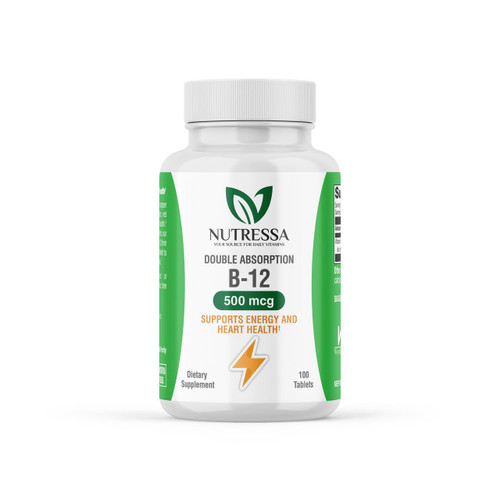Description
Nutressa's Omega 3 Fish Oil formula is designed to deliver optimal levels of Fish Oil and Omega-3 for essential daily nutrients. They are not only important in managing heart health, but also your eyes, brain and your joints. Our Fish Oil contains the more absorbable TG form of Omega-3 and is offered in easy to swallow soft gels.
- Ultra-Purified (No Fishy Taste)*
- Epa / Dha Concentrate*
- Product Of Norway - Fish Oil*
- Gluten Free, Dairy Free, Sugar Free*
- Free From Mercury, Pcbs And Dioxins*
Fish Oil supplements have grown in popularity due to increased benefits to your health. New scientific findings and research (albeit conflicting) have also come out supporting the importance of having these nutrients in your diet. It is for this reason, Fish Oil supplements are the third most taken supplement in the U.S. (1). Its important to remember that many people take vitamin supplements - i.e. Multivitamins, Vitamin D3 and etc. to improve overall health. However, some publications have shown that when taking a Fish Oil supplement or having it in your diet, it can potentially help with heart health. Fish Oils also contain the Omega-3 fatty acids eicosapentaenoic (EPA) and docosahexaenoic acid (DHA), which are both essential nutrients our body needs to support heart health.
When choosing a Fish Oil product, there are many things to consider. To pick the best, you should focus your attention on the amount of EPA+DHA, which format is the omega-3 (triglyceride or ethyl ester), the source of the fish oil, and its overall quality standards. Rest assured that with Day2Day’s Omega 3 Fish Oil supplements, we have included the right amount of EPA & DHA concentrate, we have the more absorbable triglyceride (TG) form, we source the fish oil from Norway, and our Fish Oil adheres to Global Organization for EPA and DHA Omega-3s (GOED) which sets strict quality and purity standards for Omega-3s.
Benefit of Omega-3 Fatty Acids in Fish Oil
Fish oils also contain the Omega-3 fatty acides eicosapentaenoic - (EPA) and docosahexaenoic acid (DHA), which are both essential nutrients our body needs to support heart health. EPA and DHA are called essential fatty acids because the body doesn’t produce them, making it very important to supplement this with a product or with foods in your diet.
The American Heart Association recognizes the benefits of omega-3 fatty acids for healthy people as well as those at risk of heart disease. Omega-3 fatty acids benefit the heart of healthy people, and those at high risk of — or who have — cardiovascular disease. Research has shown that omega-3 fatty acids decrease risk of arrhythmias (abnormal heartbeats), and decrease triglyceride levels, slow growth rate of atherosclerotic plaque, and lower blood pressure (slightly). In addition, the Cleveland Clinic has stated that Omega-3 fatty acids may protect you from the following:
- "Lower risk of sudden death. Omega-3 fatty acids have been shown to significantly reduce the risk of sudden death caused by cardiac arrhythmias and all-cause mortality in people with existing cardiovascular disease."* (2)
- "Reduce blood clot formation. Omega-3 fatty acids act as a natural anticoagulant by altering the ability of platelets in the blood to clump together."* (2)
- "Inhibit the growth of plaque. Omega-3 fatty acids help keep the lining of the arteries smooth and clear of damage that can lead to thickening and hardening of the arteries."* (2)
- "Decrease triglycerides. High blood triglycerides are associated with an increased risk for heart disease. Omega-3 fatty acids decrease the rate at which triglycerides are produced in the liver."* (2)
- "May increase levels of the good cholesterol, high-density lipoprotein (HDL). Because omega-3 fatty acids lower triglyceride levels, they may also increase HDL, the "good" cholesterol that protects against the development of heart disease."* (2)
- "Have anti-inflammatory properties. The development of atherosclerosis (hardening of the arteries) is thought to involve your body’s inflammatory response. Omega-3 fatty acids reduce the production of substances that are released during the inflammatory response and in doing so, prevent substances from accumulating and sticking to the lining of the arteries."* (2)
- "May lower blood pressure. Several studies have examined the effect of omega-3 fatty acids on blood pressure. Those who eat fish tend to have lower incidence of high blood pressure."* (2)
For more information, visit the Cleveland Clinic at http://my.clevelandclinic.org/health/articles/omega-3-fatty-acids-heart-health









